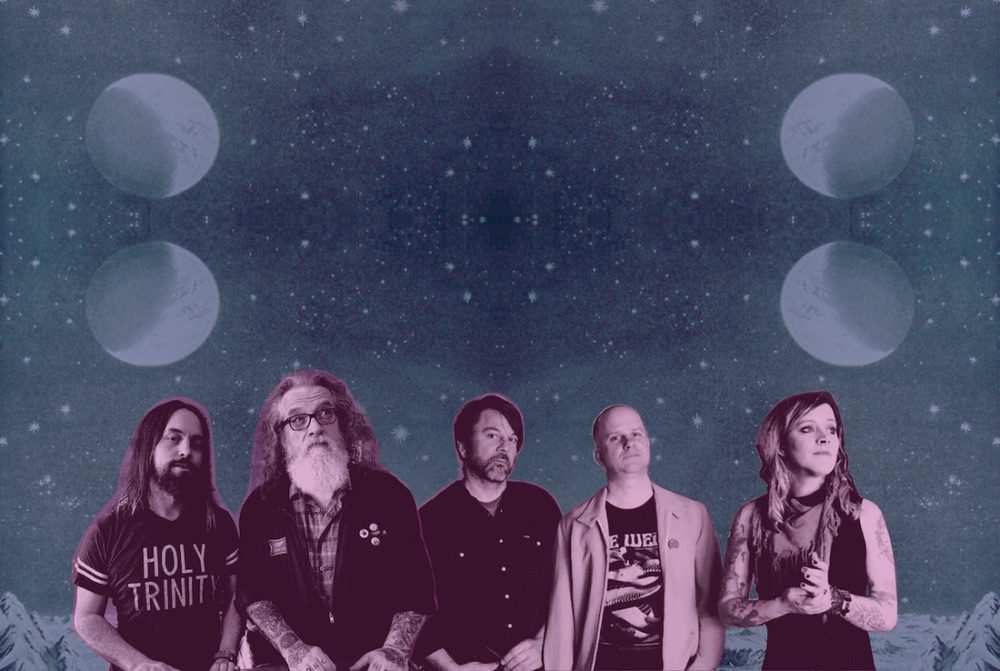
Recently, Geordie Greep made the surprising announcement that his much-loved group Black Midi has disbanded. Initial reactions included skepticism that it might be a prank, but the split was soon confirmed. Shortly after, Greep revealed his debut solo album, intriguingly titled The New Sound, signaling a definitive new chapter for him.
Throughout their three albums, Black Midi displayed a unique and adventurous approach to music. Greep’s compositions, in particular, moved away from conventional “post-punk” roots, embracing various musical styles and twisting them into Black Midi’s distinctive sound.
With The New Sound, Greep explores new artistic avenues—offering intricate arrangements and Latin-infused progressive rock, diverging from the expected. At first, this album may seem complex and puzzling, but it ultimately unfolds as Greep’s personal expression. Freed from collaboration, Greep’s peculiarities align seamlessly, showcasing his growth in vocal and lyrical depth. These tracks evoke the raw emotions of late-night reflections, transforming them into poignant narratives.
The New Sound feels like a bold statement from Greep, representing his reemergence as a solo artist. Ahead of its launch, we had the opportunity to chat over Zoom, where he provided insightful perspectives that enhanced the captivating vision presented within this new work.
Below, check out the new track “Blues,” along with highlights from our conversation.
The announcement of your album came right after the news of Black Midi’s end. How long have you been working on these songs? Were they more aligned with your time in the band or a reflection of your next steps?
GEORDIE GREEP: It’s a bit of both. Some tracks began right after releasing our third Black Midi album. I enjoy being active and hope to produce a new album annually. Though I missed a year, I’m eager to create more. As I grew older, I became more honest about my desires and less concerned with others’ expectations. I realized I needed to pave a path that aligns with my long-term vision—not just for next year, but for decades to come. Playing in the band was great, but it wasn’t my ultimate goal; I wanted to explore a specific musical experience. In my mind, I was always thinking, “Let’s get this album off the ground.”
Was there a fourth Black Midi album in progress, but you found yourself drawn to this new direction instead?
GREEP: The songs we worked on together didn’t feel satisfying. The material I had didn’t seem suitable for the band’s style. For instance, track “Holy, Holy” would be challenging to justify to anyone else in the band. I had to convince myself it was a worthwhile idea—hoping people would appreciate it once released. Ultimately, I feared that if it didn’t go well, it could backfire. Collaborating would have led to compromises, risking the song’s integrity. In this case, a singular vision proved to be beneficial.
It sounds like that song might divide opinions. Some might see it as a logical continuation from Black Midi, while others could think it reflects the most eccentric aspects of your former band. I sense a shift towards more melodic structures rather than the abrupt changes heard in your previous work. Did you anticipate how listeners might react?
GREEP: I’ve listened to it repeatedly and still enjoy it, but sometimes it’s hard to maintain perspective during the creation process. It’s easy for a track to become unintentionally bland or even poor. The constant worry is, “Am I completely off base?” Yet, I was excited by it. Regarding audience expectations, it doesn’t bother me either way. Whether they think I’ve completely diverged or appreciate the album’s consistency, the overarching feeling inside my head is cohesive. While it ventures into unpredictable territories, it feels more grounded with definable grooves and structured pieces. The chaotic transitions from Black Midi might have reflected a youthful uncertainty—I ensured this work remained simpler, rooted in solid concepts without overcomplicating the compositions.
You previously indicated a preference for your later work over earlier projects. Looking back, do you still appreciate your contributions to Black Midi or do you feel a disconnect with that era?
GREEP: I genuinely think those albums are well-crafted. I’m proud of them. The unique qualities they possess, whether liked or disliked, are significant. Considering our youth and the dynamics within a group of strong personalities, producing three albums that even resonate has been an accomplishment. Finding them good is a bonus. I’ve come to terms with the fact that with every album, I’ll claim it reflects my true vision at that point. If a new project feels vastly superior, it’s a sign of growth and a positive outlook.




Comment